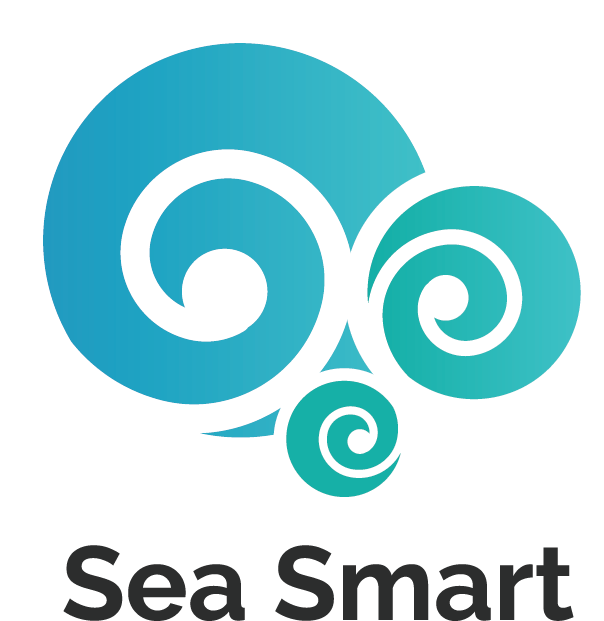6 Tips for Reducing Plastic Waste in the Ocean
Plastic is an essential material for packaging, manufacturing, fashion, and other types of consumer or commercial products. Unfortunately, mass production coupled with improper disposal of plastic has led to mass contamination in our beloved ocean. According to International Union for Conservation of Nature (IUCN) data, out of over 300 million tons of plastic produced annually, at least 14 million tons end up in the ocean. Plastic makes up 80% of all marine debris found from surface waters to deep-sea sediments. Marine species ingest or are entangled by plastic debris, which causes severe injuries and death. This plastic pollution threatens food safety and quality, human health, coastal tourism, and contributes to climate change.
To protect our oceans, there are several actions we can take to minimize overall plastic waste in the ocean. Here are six tips you can use:
1. REDUCE THE USE OF SINGLE-USE PLASTICS
The easiest and most direct way to limit plastic waste in the ocean is by reducing our usage of single-use plastics. Single-use plastics include plastic bags, water bottles, straws, cups, utensils, dry cleaning bags, take-out containers, and any other plastic items that are used once and then discarded.
Some tips for reducing the use of single-use plastics are:
Don’t use any single-use plastics that you do not need. For example, if you’re ordering takeout food to bring it home to eat, you can ask the restaurant to not provide you with plastic utensils since you can use your own reusable utensils at home.
Use reusable grocery bags, produce bags, bottles, utensils, coffee cups, and dry cleaning garment bags whenever possible.
Various cities across Canada have initiated bans to limit the use of single-use plastics. For example, the City of Vancouver has approved a ban for single-use items starting January 1st, 2022 for businesses:
Stop using single-use plastic and compostable plastic shopping bags
Charge a minimum fee of $0.15 for paper shopping bags and $1 for new reusable shopping bags in 2022
Increase minimum fees to $0.25 per paper shopping bag and $2 per new reusable shopping bag in 2023
If receipts are given, show the fees charged for paper and new reusable shopping bags as a separate line item (or line items)
Keep the fees from paper and new reusable shopping bags. Revenue from the bag fees are not remitted to the City.
Ensure paper shopping bags contain at least 40% recycled content and are labeled “recyclable” and “made of 40% recycled content”
Ensure new reusable shopping bags are designed and manufactured to be capable of at least 100 uses
If requested by the City, and no sooner than Jan 1, 2023, report the number of paper shopping bags and new reusable shopping bags distributed during the previous 12 months
Source: City of Vancouver Single-Use Item Reduction Strategy
2. RECYCLE REGULARLY
If you must and can’t avoid using single-use plastic, please recycle them after. Currently, only 9% of plastic is recycled worldwide. Recycling helps keep plastics out of the ocean and reduces the amount of “new” plastic in circulation. If your neighborhood or city has a recycling depot or accepts plastics for recycling as part of its weekly garbage pickup, please recycle all your plastic.
3. PARTICIPATE IN A SHORELINE CLEANUP
Join a shoreline cleanup to remove plastics from the shore and prevent plastics from getting there in the ocean. This is one of the most direct and rewarding ways to reduce ocean plastic pollution. You can simply go to the beach or waterway and collect plastic waste on your own or with friends or family, or you can join a Sea Smart School’s shoreline cleanup.
4. DON’T USE PRODUCTS THAT CONTAIN MICROBEADS
Tiny plastic particles, called “microbeads,” have become a growing source of ocean plastic pollution in recent years. Microbeads are found in some face scrubs, toothpastes, and body washes, and they readily enter our oceans and waterways through our sewer systems, and affect hundreds of marine species. Avoid products containing plastic microbeads by looking for “polyethylene” and “polypropylene” on the ingredient labels of your cosmetic products.
5. ADVOCATE SOCIAL-IMPACT ORGANIZATIONS THAT PROTECT OUR OCEANS
Social-impact organizations such as Sea Smart School need your support! We work diligently to advocate to the public as well as youth and children about the importance of minimizing plastic usage and waste. You can support us for donating, telling your peers about us, or volunteering.
Every contribution makes a big difference!
6. SPREAD THE GOOD WORD
Stay informed on issues related to plastic pollution in the ocean or plastic waste in the ocean and help make others aware of the problem. Tell your friends and family about how they can be part of the solution and support social-impact organizations that protect our oceans.
It’s up to all of us to protect our oceans. By using the six tips above, we will collectively make an effort to reduce our daily plastic usage and waste and actively recycle plastic products so these products don’t end up in our beloved delicate oceans. If you want to take a further step to protect our oceans, please volunteer with Sea Smart School or donate to our social cause.


